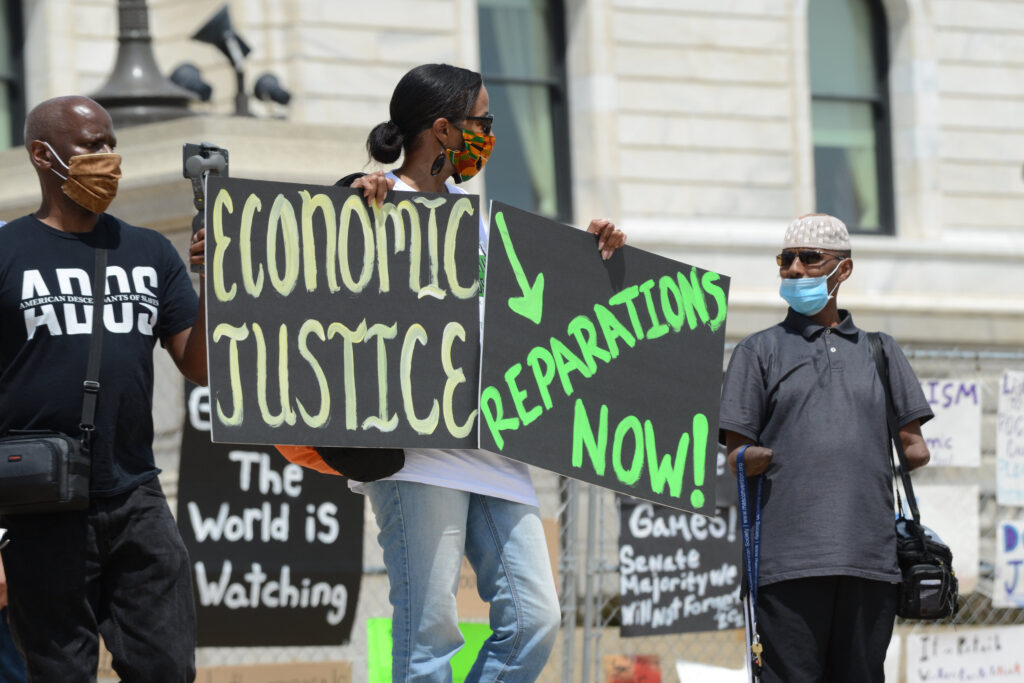Diane’s farewell message
After 52 years at WAMU, Diane Rehm says goodbye.

A rally outside the Minnesota capitol building on Juneteenth in 2020 to demand reparations from the United States government for years of slavery, Jim Crow, segregation, redlining, and violence against Black people from police.
How can a country built on the backs of enslaved people compensate for past wrongs? That is the question at the heart of Andrew Delbanco’s upcoming Jefferson Lecture in the Humanities.
Each year the National Endowment for the Humanities selects a scholar to give an address, an act the NEH calls “the highest honor the federal government confers for distinguished intellectual achievement in the humanities.”
This year, on the program’s 50th anniversary, Delbanco, a professor of American Studies at Columbia University, will explore “The Question of Reparations: Our Past, Our Present, Our Future.”
He traces the history of the debate about reparations that began before the Civil War and stretches to today, and tells Diane he hopes understanding our history can help inform the country’s choices about its future.
After 52 years at WAMU, Diane Rehm says goodbye.
Diane takes the mic one last time at WAMU. She talks to Susan Page of USA Today about Trump’s first hundred days – and what they say about the next hundred.
Maryland Congressman Jamie Raskin was first elected to the House in 2016, just as Donald Trump ascended to the presidency for the first time. Since then, few Democrats have worked as…
Can the courts act as a check on the Trump administration’s power? CNN chief Supreme Court analyst Joan Biskupic on how the clash over deportations is testing the judiciary.